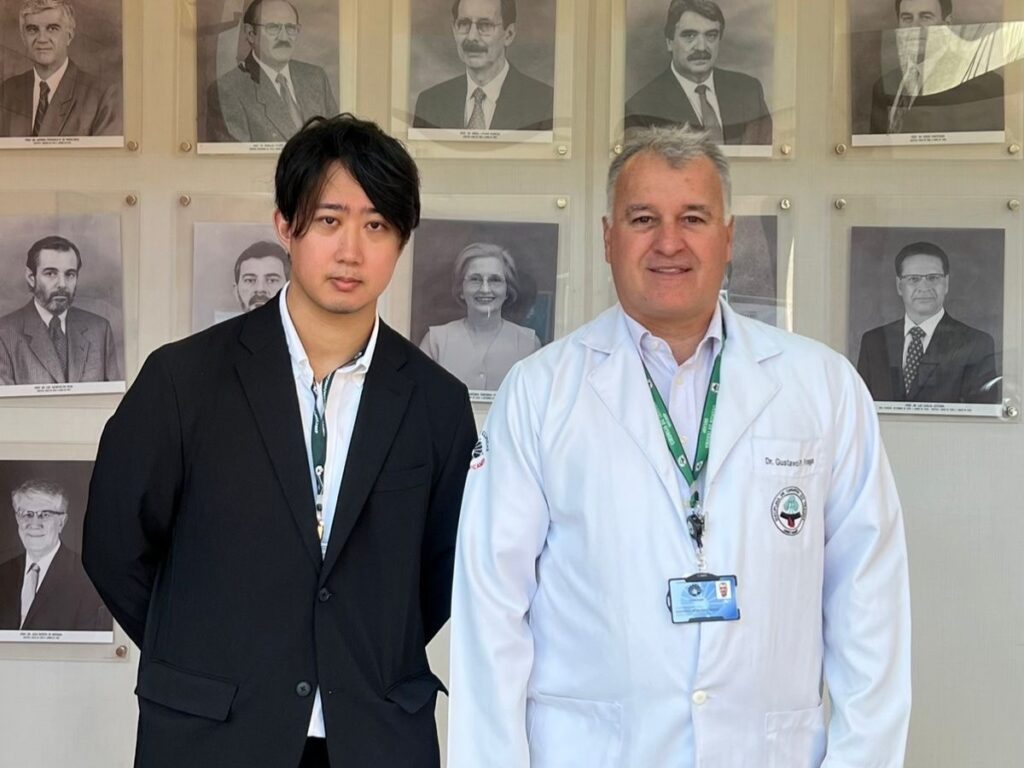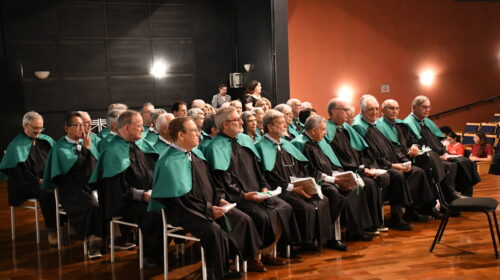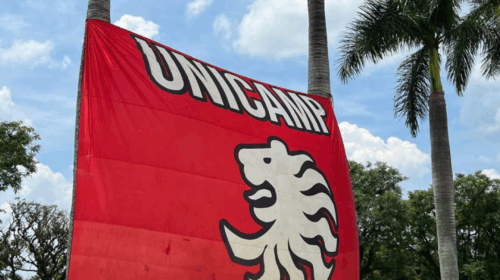The Japanese physician Ryoma Sakamoto, a general surgery resident at Kameda Medical Center (Japan), spent two weeks — from September 20 to October 3, 2025 — observing clinical routines at the Trauma Surgery Division of the University of Campinas (Unicamp), one of the world’s leading trauma centers. The visit took place at Hospital de Clínicas and aimed to enhance his knowledge of trauma management and acute surgical care.
Sakamoto explained that he aspires to specialize in Trauma and Acute Care Surgery. In Japan, he noted, the number of severe trauma cases has been steadily declining, making it increasingly difficult for residents to gain sufficient hands-on experience. “For this reason, I decided to visit Unicamp to learn from their advanced trauma management practices,” he said.
During his observership, the resident accompanied Unicamp’s general surgery residents in ward rounds, surgical procedures, and postoperative care. “Most of the trauma cases I saw were related to traffic accidents,” Sakamoto reported. Although he did not witness any penetrating or gunshot injuries, he learned that the incidence of such cases has also been decreasing in Brazil.
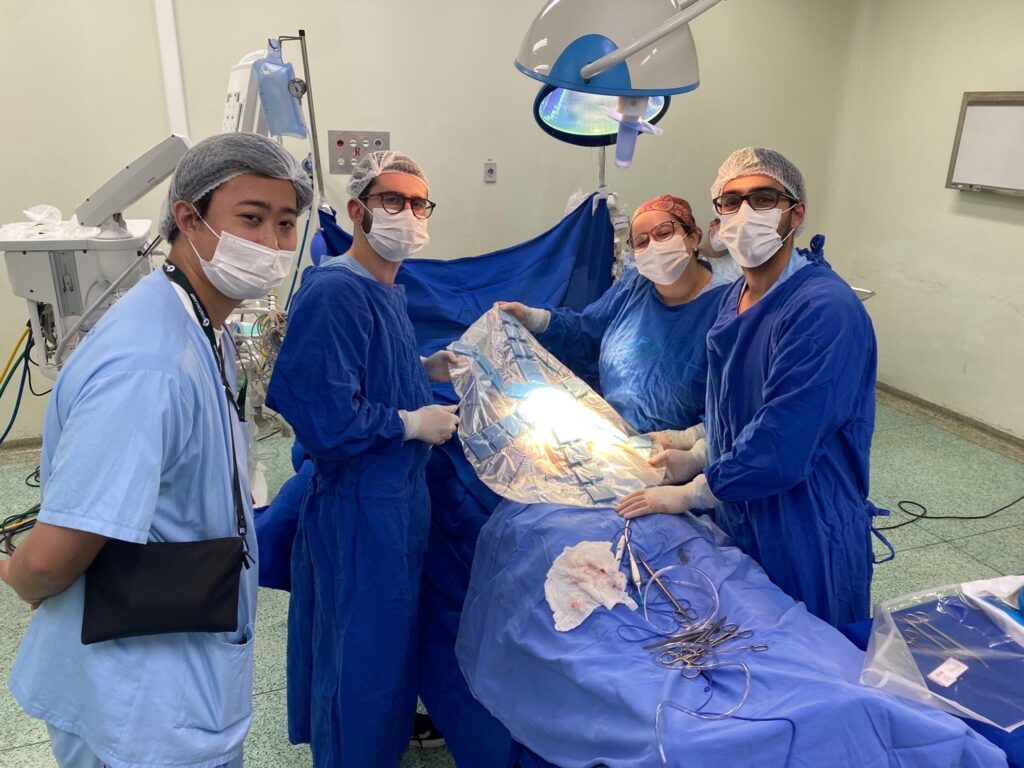
The Trauma Surgery Division also manages emergency operations for non-traumatic conditions, such as gastric perforation and appendicitis. This provided Sakamoto with the opportunity to observe a broad range of acute surgical cases. He pointed out that obesity rates in Brazil differ from those in Japan, which poses unique challenges in the operating room. “Even procedures that would typically be straightforward laparoscopic surgeries in Japan were technically more difficult here due to patient body habitus,” he observed.
Between trauma cases, he also had the opportunity to observe gastrointestinal and pediatric surgeries. A particularly memorable moment, he recalled, was watching a bariatric surgery — a procedure still relatively uncommon in Japan — which left a lasting impression.
Sakamoto praised the Unicamp trauma faculty and general surgery residents for their hospitality and commitment to teaching. “They were exceptionally kind and welcoming. Although my Portuguese is limited, they always made an effort to explain everything in English,” he said.
Beyond the medical experience, the Japanese resident was deeply impressed by Brazilian culture and the warmth of the people he met. “Their genuine kindness left a deep impression on me, and I hope to bring some of these attitudes back to my own country,” he added.
At the end of his stay, Sakamoto expressed his gratitude to Professor Gustavo P. Fraga, the faculty members of the School of Medical Sciences (SMS), and the trauma and general surgery teams for their generous support and for providing what he described as “a valuable learning opportunity.”
